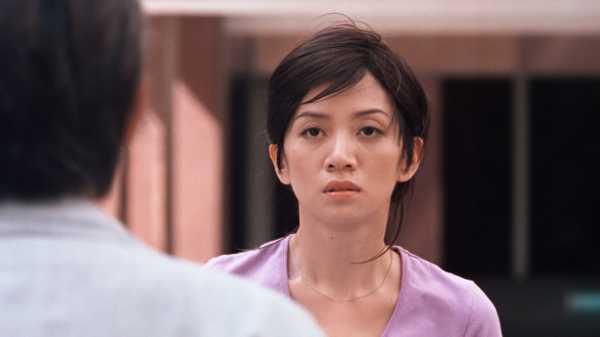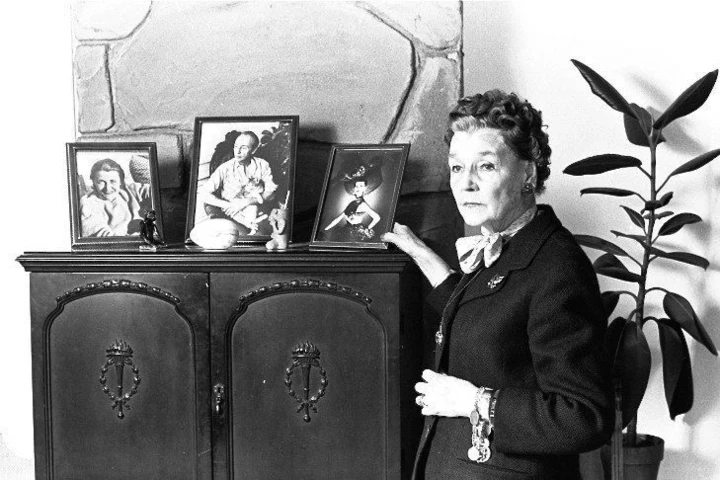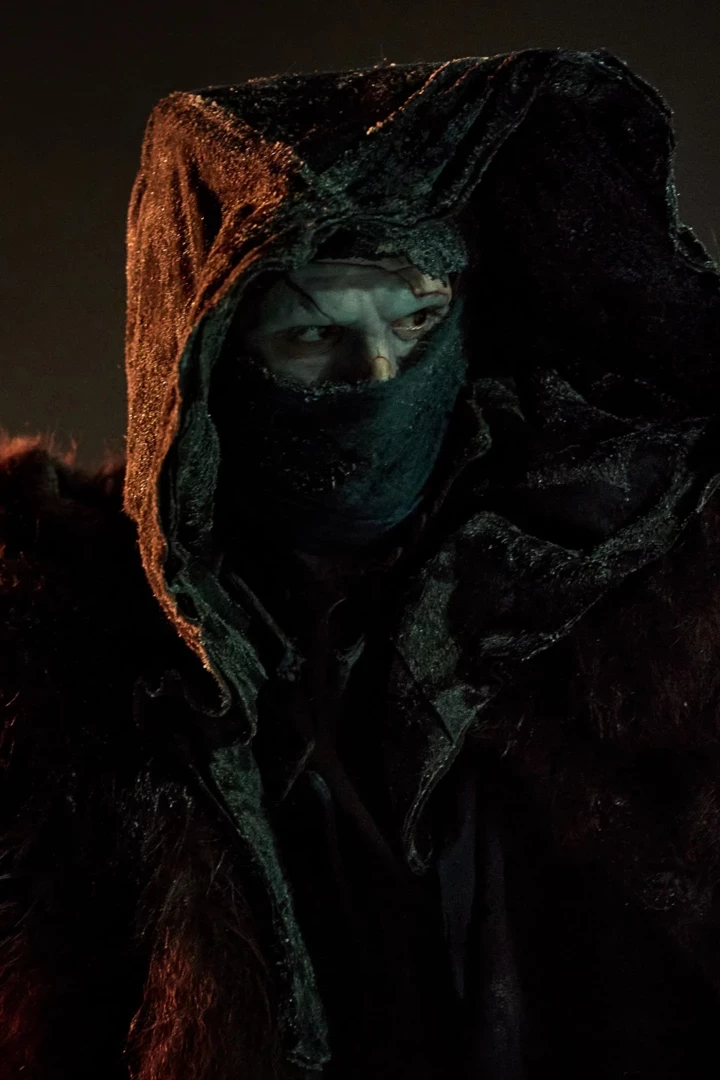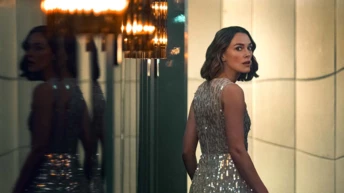
Save this storySave this storySave this storySave this story
One of the last DVDs that Netflix ever shipped me was “July Rhapsody” (2002), a moving and melancholy romantic drama written and directed by Ann Hui. I rented it years ago, in 2014, while researching an essay celebrating Hui as a significant if under-heralded filmmaker of the Hong Kong New Wave; as if to prove my point, tracking down copies of her work wasn’t easy. At the time, Hui was already a remarkably prolific filmmaker, known for films as different as “Boat People” (1982), a political thriller set in the aftermath of the Vietnam War, and “Song of the Exile” (1990), a semi-autobiographical mother-daughter drama, starring Maggie Cheung as a fictionalized version of Hui herself.
Now, at seventy-seven, Hui has directed some thirty-odd features across a dizzying range of genres: she's made historical epics, martial-arts epics, and humanist melodramas, as well as a yakuza thriller ("Zodiac Killers"), a supernatural horror-comedy ("The Spooky Bunch"), and an artist bio-pic ("The Golden Era"). Despite or perhaps because of her narrative versatility, her films have never had the formal flash, vivid stylistic signature, or widespread Western recognition achieved by some of her Hong Kong contemporaries, like Wong Kar Wai and John Woo. Hui’s films are screened relatively rarely in U.S. repertory cinemas, and few of them are easy to find on American streaming platforms. (Those interested in her work may have better luck with online retailers specializing in East Asian titles, like YesAsia.com and Buyoyo.com.)
And so it’s welcome news that, more than twenty years after it first arrived on Hong Kong screens, “July Rhapsody” has finally opened theatrically in the U.S., in a new 4K restoration now showing at Film Forum. Like many titles from overseas that have received a belated commercial release in this country, the movie emerges feeling like an unspoiled document of its original moment and milieu—a freshly opened time capsule. I suppose that old disk, which I still have tucked away in a box somewhere, is something of a time capsule as well; whether owing to laziness, forgetfulness, or my own infrequent use of Netflix’s DVD-rental service, I never mailed it back in 2014. (When Netflix finally stopped shipping DVDs to customers, last year, it encouraged us to hold on to our outstanding wares—each one a grubby-sleeved relic of the hard-media era, before the rise of streaming platforms overwhelmed the home-viewing experience.)
None of this is exactly incidental to the concerns of “July Rhapsody” itself. Set mostly in 2001, the movie, which was scripted by Ivy Ho, has something to say about the passage of time, the obsolescence of old technologies and the advancement of new ones, and the way stories endure even when their modes of delivery do not. The protagonist is Lam Yiu-kwok (Jacky Cheung), a forty-year-old high-school teacher, who lives in Hong Kong with his wife of roughly twenty years, Ching (the late Anita Mui), and their two sons, On-yin (Shaun Tam) and Lui-yin (Jin Hui). A low-simmering melodrama of illicit desires, deferred dreams, and long-buried resentments takes shape, drawing Lam and Ching apart and straining their marriage. But some of the movie’s most resonant moments unfold at home, in the quotidian margins of the story: when Lam searches for an old VHS tape that he needs for a class he’s teaching, or when the boys patiently explain to their mother the miracle of digital cameras, which don’t require film. In these scenes of bustling everyday domesticity, Hui and Ho nod to an outside world in ceaseless technological flux.
Even as Lam watches his sons speed toward adulthood—On-yin is at university, while Lui-yin is finishing up high school—he clings insistently to his own fast-fading youth. He plays the hip, easygoing teacher with his students, cracking jokes, absorbing their teen vernacular (or trying to), and relentlessly gauging their up-to-the-minute tastes in pop culture. Unsurprisingly, the students have little use or appreciation for the ancient Chinese literature, specifically poetry, that is Lam’s area of expertise, and which he is fond of reciting and quoting to anyone who will listen. Ching, who shares her husband’s love of verse, listens and sometimes recites it alongside him. On-yin, the more studious of their two sons, knows some of it by heart as well.
But, at school, the only one of Lam’s students who shows any aptitude for poetry or composition is Wu (Karena Lam), who’s clearly a talented writer but only intermittently applies herself. Most of the time, Wu is in open rebellion against school norms. At one point, gossip spreads that Wu has cursed the principal to his face, though the fact that the flare-up transpires offscreen frankly raises a viewer’s doubts; Wu is too breathily subdued for us to imagine the character really losing control. She tends to play it cool, especially when she starts flirting with Lam after class—tentatively at first, then with growing brazenness. You don’t need to know the direct translation of the movie’s original Chinese title, “Man, Forty,” to see that this is the story of a male midlife crisis, or to guess the illicit nature that that crisis will take.
There’s more lump-in-the-throat anxiety than erotic heat or tension in Hui’s depiction of Lam and Wu’s growing relationship, which mostly develops over time, and in public, as the two hang out at the mall, where Wu works part time at a clothing boutique. Wu, notably, is framed as the instigator in the relationship; Cheung has a few priceless reaction shots, as Lam can’t believe—or, ultimately, resist—his student’s seductive effrontery. A late closeup of a hotel-room door is the movie’s sole visual confirmation that the affair has turned sexual, and it’s implied that the two break up soon afterward. “July Rhapsody” treats all this with a casual yet conspicuous lack of judgment—the fling is framed as inappropriate, rather than immoral—which might be the most frozen-in-time thing about the movie. It’s difficult to imagine another filmmaker spinning a version of this story today, anywhere in the world, without adopting a more moralistic tone, turning Lam into an overt creep, or forcing him to suffer professional, legal, and certainly marital consequences from his betrayal.
Yet Lam’s betrayal is itself, and already, a kind of marital consequence. From time to time, the action zips back to some twenty years earlier, when Lam and Ching are still high-school students themselves. The younger Lam (Otto Wu) falls in love with the younger Ching (Cara Chu) around the same time he falls in love with Chinese literature; we watch as their teacher Mr. Seng (Tou Chung-hua) nurtures Lam’s passion for poetry. Alas, Mr. Seng is also nurturing his own extramarital affair with Ching, the shattering fallout from which ultimately pushes her into Lam’s arms. Lam’s years-later pursuit of his own indiscretion with a student, in other words, isn’t just rooted in straightforward lust; it’s laced with buried resentment and a spirit of belated revenge, and also, perhaps, a perverse gesture of empathy toward his former teacher—especially after Mr. Seng, now gravely ill, tries to reconnect with Ching after many years apart.
Cheung’s splendid performance holds all these emotional possibilities in slyly ambiguous balance. The actor also hints at an element of long-suppressed rebellion in Lam, who, for decades, has played the responsible, hardworking husband and father, with little outlet for the forthright passions expressed in the ancient Chinese literature he so loves and teaches. One of Lam’s favorite writers is the Tang Dynasty poet Li Bai, who was much celebrated for his poems about wine, and who, according to one rumor, died by falling from a boat, drunk, into the Yangtze River. Lam, by contrast, is perpetually and depressingly sober; at one point his friend Yue (Eric Kot), a raucous bartender, scolds him, “Have you ever been drunk? How can you claim to be Li Bai’s fan?”
The film’s own style may feel more prosaic than the poetic, but it’s awfully irresistible prose; its most conventional element, a plaintively beautiful musical theme composed by Tommy Wai, is also its most emotionally effective. Yet Hui does infuse a wistful poetry into her filmmaking, particularly in the oblique, elliptical way she handles time and perspective. “July Rhapsody” unfurls as a series of stories, one nested within the other; it’s a tricky narrative structure, handled with such deft offhandedness that you almost forget it’s there. The big revelations are handled with similar speed; Lam and Ching’s past tumbles forth in a welter of fleeting conversations and brief, impressionistic flashbacks, all of them lent a certain weightlessness by a handheld camera that tends to sweep through a scene, nimbly catching confessions and revelations on the fly, rather than locking the actors down.
The velocity of the storytelling doesn’t always maximize its dramatic impact; a more deliberate, lingering approach might have drawn out the moral complexity and emotional gravity of the characters’ history, or allowed us to feel the past bearing down more acutely on the present. But, on another level, Hui’s once-over-lightly approach is startlingly effective; it suggests just how swiftly time passes for us all, and how untethered the characters are from their own moment. The young Lam and Ching, it’s suggested, had no time to process their confusion before beginning their life together. They’ve survived by looking firmly ahead and letting the past stay in the past—at least until now.
But what does “now” even mean? The long absence of “July Rhapsody” from American theatres poignantly complicates that question, as does its unexpected emergence after more than two decades—which is to say, after about the length of Lam and Ching’s marriage. Toward the end of the story, Lam reminds Ching how sad it is that they have never gone to see the Yangtze River, the setting of so many of their beloved Li Bai’s poems. The river itself is glimpsed throughout the movie only in degraded VHS footage, shimmering like the fuzziest, cruddiest of mirages; seen in the context of this crisp digital restoration, the waters seem to beckon to the characters and us, more tantalizing and unreachable than ever.
The movie remains, for many of its actors, a memorable highlight and a career breakthrough. It’s a superb showcase for Jacky Cheung, a fine actor, now in his sixties, who is also one of Asia’s biggest pop singers. Karena Lam and Shaun Tam both counted the movie among their earliest credits, and both went on to their own career successes. The movie’s most poignant presence, unsurprisingly, is Anita Mui, who, like Cheung, was not only an actor but also a beloved Cantopop icon; “July Rhapsody” was the last film she appeared in before her death, in 2003, at the age of forty, from cervical cancer. Ching may be somewhat narratively sidelined, but Mui’s final screen performance is a thing of aching delicacy and the movie’s stealth emotional weapon, marked by a restraint that gives way, in the end, to a cathartic onrush of tears. To see her again on the big screen is to weep with her, with heartache and gratitude. ♦
Sourse: newyorker.com







